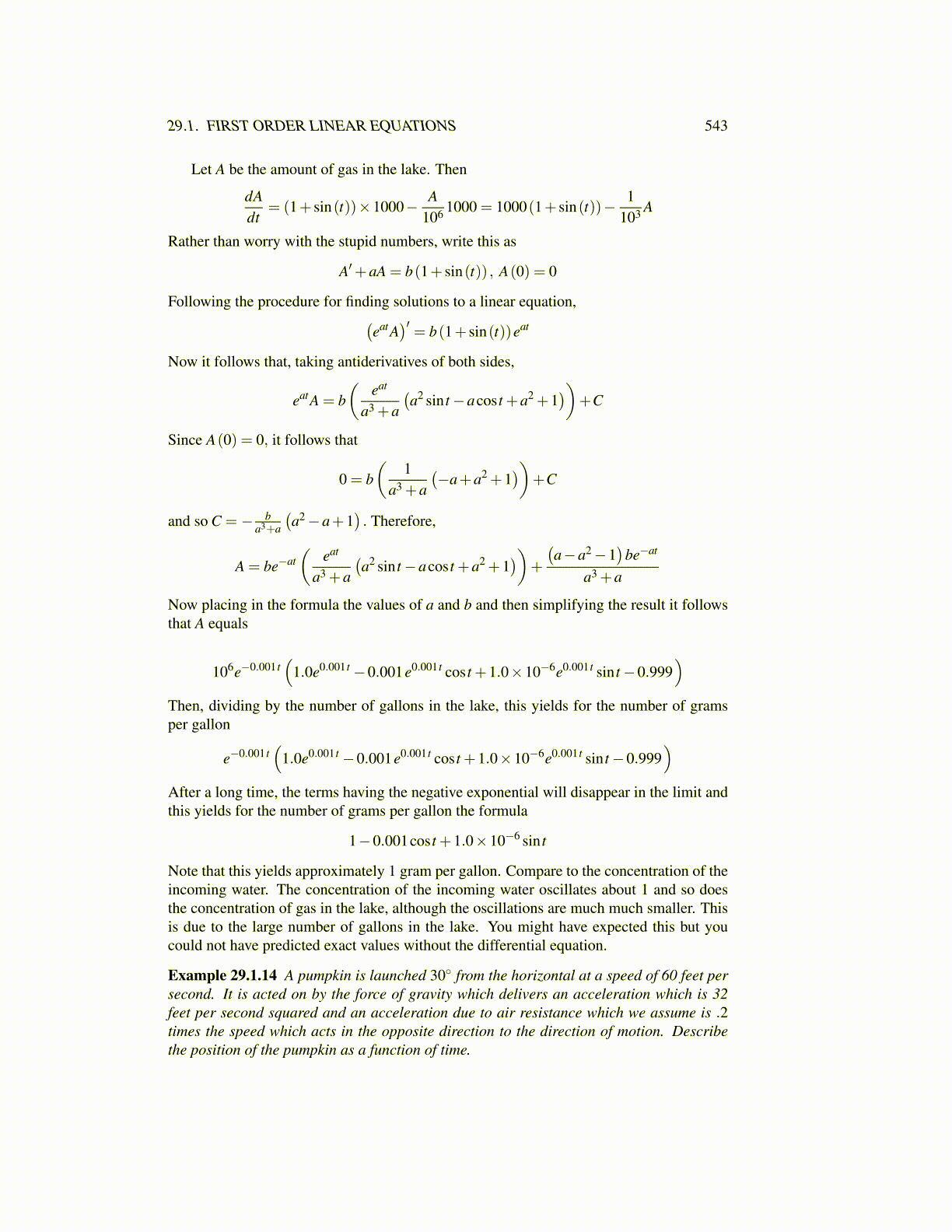
29.1. FIRST ORDER LINEAR EQUATIONS 543
Let A be the amount of gas in the lake. Then
dAdt
= (1+ sin(t))×1000− A106 1000 = 1000(1+ sin(t))− 1
103 A
Rather than worry with the stupid numbers, write this as
A′+aA = b(1+ sin(t)) , A(0) = 0
Following the procedure for finding solutions to a linear equation,(eatA
)′= b(1+ sin(t))eat
Now it follows that, taking antiderivatives of both sides,
eatA = b(
eat
a3 +a
(a2 sin t−acos t +a2 +1
))+C
Since A(0) = 0, it follows that
0 = b(
1a3 +a
(−a+a2 +1
))+C
and so C = − ba3+a
(a2−a+1
). Therefore,
A = be−at(
eat
a3 +a
(a2 sin t−acos t +a2 +1
))+
(a−a2−1
)be−at
a3 +a
Now placing in the formula the values of a and b and then simplifying the result it followsthat A equals
106e−0.001 t(
1.0e0.001 t −0.001e0.001 t cos t +1.0×10−6e0.001 t sin t−0.999)
Then, dividing by the number of gallons in the lake, this yields for the number of gramsper gallon
e−0.001 t(
1.0e0.001 t −0.001e0.001 t cos t +1.0×10−6e0.001 t sin t−0.999)
After a long time, the terms having the negative exponential will disappear in the limit andthis yields for the number of grams per gallon the formula
1−0.001cos t +1.0×10−6 sin t
Note that this yields approximately 1 gram per gallon. Compare to the concentration of theincoming water. The concentration of the incoming water oscillates about 1 and so doesthe concentration of gas in the lake, although the oscillations are much much smaller. Thisis due to the large number of gallons in the lake. You might have expected this but youcould not have predicted exact values without the differential equation.
Example 29.1.14 A pumpkin is launched 30◦ from the horizontal at a speed of 60 feet persecond. It is acted on by the force of gravity which delivers an acceleration which is 32feet per second squared and an acceleration due to air resistance which we assume is .2times the speed which acts in the opposite direction to the direction of motion. Describethe position of the pumpkin as a function of time.